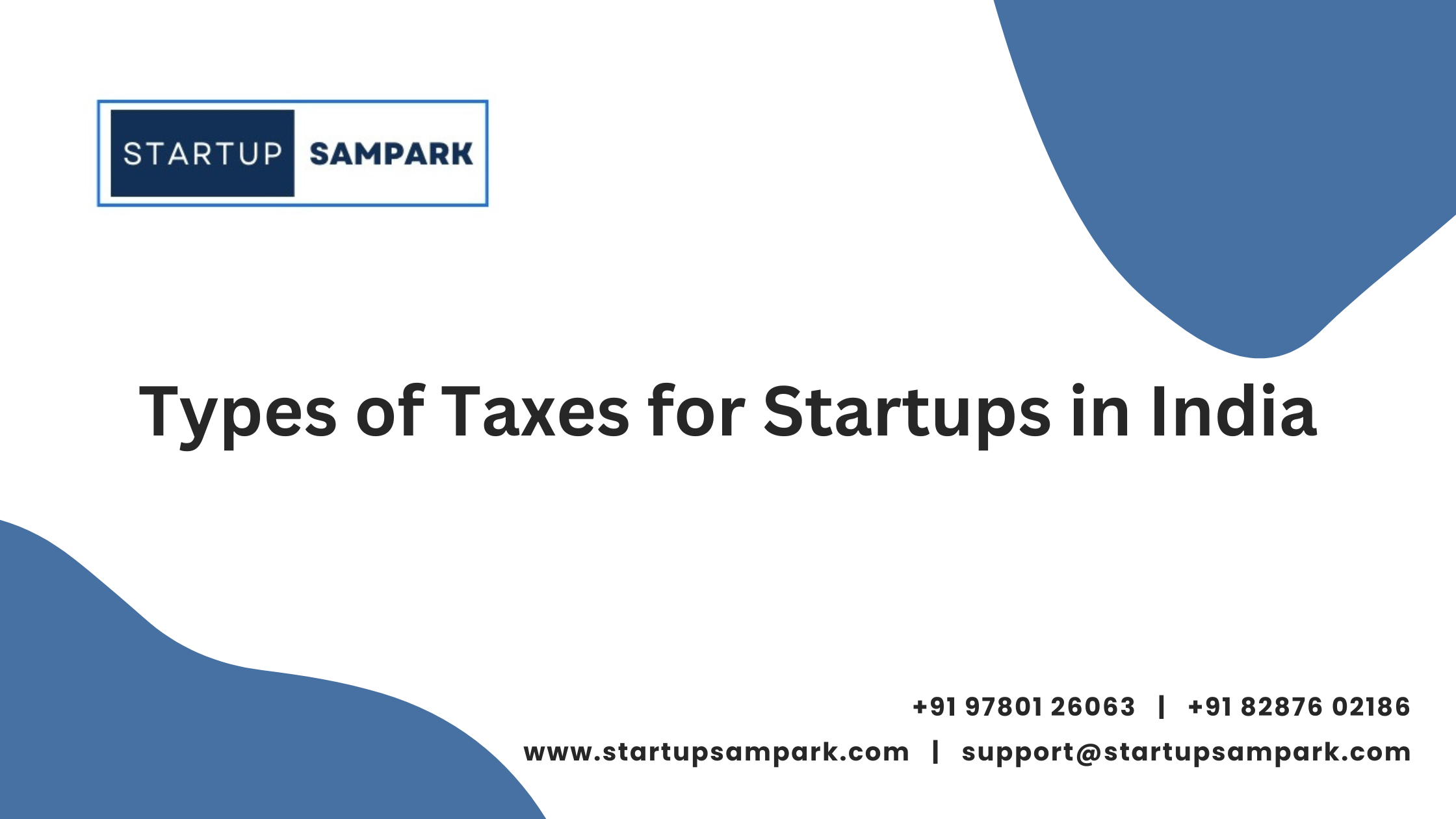Types of Taxes for Startups in India
In India, startups face a range of taxes that can impact their financial strategy and operational planning. Understanding these taxes is crucial for effective management and compliance. Here’s a breakdown of the key types of taxes relevant to startups in India:
- Income Tax: Startups in India are subject to income tax on their profits. The tax rate varies based on the nature of the entity and its revenue. For companies, the tax rate is typically 25% for those with an annual turnover up to ₹400 crore, and 30% for those exceeding this threshold. For new startups recognized under the Startup India scheme, there may be tax exemptions or reduced rates available, particularly in the first few years of operation, provided they meet certain conditions. Proper accounting and tax planning are essential to maximize these benefits and ensure compliance.
-
 Startup Registration (DPIIT Recognition)₹8,850.00
Startup Registration (DPIIT Recognition)₹8,850.00
- Goods and Services Tax (GST): GST is a consumption tax levied on the supply of goods and services. Startups must register for GST if their turnover exceeds the threshold limit, which varies depending on the type of supply and location. GST rates can range from 0% to 28%, depending on the nature of the goods or services. Compliance involves filing periodic GST returns and maintaining detailed records of transactions. Startups can also avail of input tax credits to offset the GST paid on purchases, which can help reduce overall tax liabilities.
- Employee Provident Fund (EPF): EPF is a social security scheme mandated for employees in India. Startups with more than 20 employees are required to contribute to the EPF, which includes both employer and employee contributions. The standard contribution rate is 12% of the employee’s basic salary and dearness allowance. This fund provides employees with financial security for retirement and is a crucial aspect of labor compliance for startups.
- Employee State Insurance (ESI): ESI is a health insurance scheme for employees working in non-seasonal factories or establishments with more than 10 employees. The ESI contribution is shared between the employer and employee, with the current rates set at 3.25% of the employee’s wages by the employer and 0.75% by the employee. This tax helps cover medical expenses and provides benefits such as sickness and maternity leave.
- Professional Tax: Professional tax is levied by state governments on professionals, traders, and employees. The rate varies by state and the nature of employment or profession. Startups must comply with state-specific regulations and ensure timely payment of professional tax for their employees. This tax is usually deducted from employee salaries and remitted to the state authorities.
- Tax Deducted at Source (TDS): TDS is a system of collecting income tax at the source of income. Startups must deduct TDS on various payments, including salaries, rent, interest, and professional fees, as per the prescribed rates under the Income Tax Act. The deducted amount must be deposited with the government and reported through TDS returns. Proper TDS management ensures compliance and avoids penalties for non-deduction or delayed payments.
Navigating the tax landscape in India requires a thorough understanding of these taxes and their implications for startup operations. Consulting with tax professionals and maintaining accurate records can help startups manage their tax obligations effectively and leverage available benefits.
startup, Company incorporation, india
-
 Startup Registration (DPIIT Recognition)₹8,850.00
Startup Registration (DPIIT Recognition)₹8,850.00















Post Comment